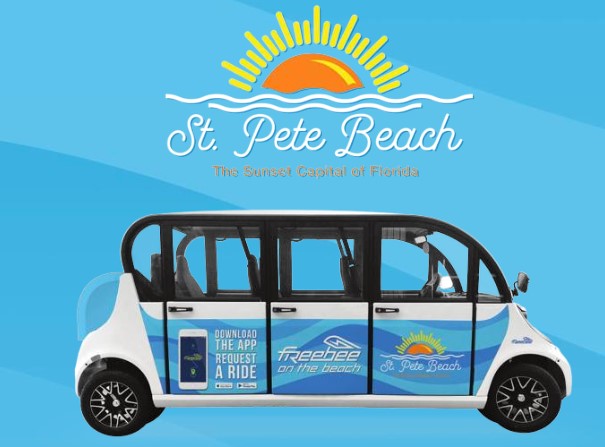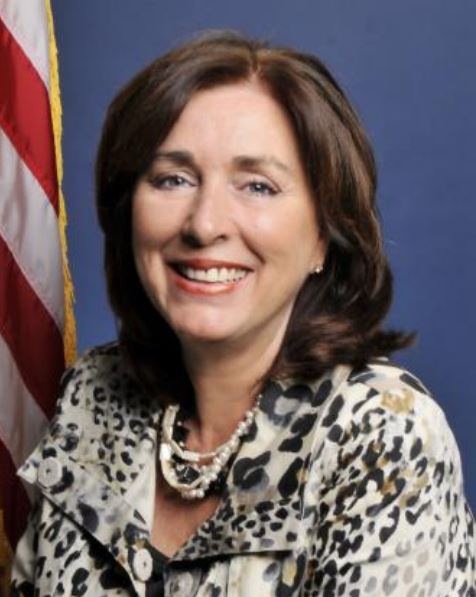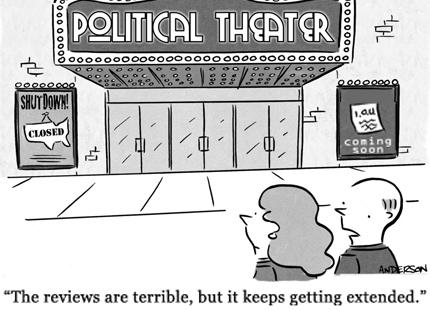As the Pinellas Suncoast Transit Authority (PSTA) continues to fail to meet their own ridership projections, one Pinellas County beach town has shown that transit can be provided at a much lower cost to the taxpayers. The City of St. Pete Beach’s Freebee transit service launched in October 2019 and has seen increasing ridership with decreasing costs per ride since its launch. All rides are free to the rider.

“St. Pete Beach began using Freebee in October 2019 to bridge the gap in transit services to Pass-a-Grille after fixed route PSTA Central Avenue Trolley service was cut back to terminate at County Park [47th Avenue],” Michelle Gonzalez, Director of Community Development at the city of St. Pete Beach told the Guardian. “We expanded the service area two times since then and now it cover the entire city limits of St. Pete Beach. There is steady growth in ridership year-over-year, with over 47,000 riders in FY 2021 and over 87,000 riders in FY 2022.” The ridership is FY 2020 was not as expected due to the impact of COVID.
The cost per ride for the Freebee for FY 2022 was $4.52, compared to $19.52 for a PSTA rider. Less than $0.90 of the cost of a PSTA ride is covered by fares, the rest is paid for by the taxpayers. All Freebee vehicles are electric and produce no tail pipe emissions. Freebee tries to hire locally, and most of the Freebee St. Pete Beach drivers are St. Pete Beach residents.
Unlike PSTA’s fixed route transit, the Freebee is a door to door service provided by a private company that operates in Florida and Virginia. The city pays Freebee the total cost of operations out of its city budget. The hourly rate is much lower than the city pays PSTA for its services.
“The hourly rate per revenue hour paid to PSTA by the City continues to increase every year,” Gonzalez said. “In FY 2022, the rate was $40 and for FY 2023 we are paying $56 per hour. Had the City not worked to continue to cut back the CAT trolley service, today the city’s cost for bus service would be about $916,000” compared to $569K in FY 2019. In its current fiscal year, the city pays slightly less than that $916,000 for both PSTA and the Freebee while “providing enhanced service catered specifically to our community.”

“Our residents love the Freebee microtransit,” St. Pete Beach City Commissioner Melinda Pletcher told the Guardian. “It takes people from where they are to where they want to go and has been very helpful to people who need mobility in our city. Our visitors love the service, too.” Pletcher was instrumental in shifting funds from solely PSTA to a mix of PSTA and Freebee services.
A rider hails the Freebee through an app on their phone. The average Freebee wait time is 12 minutes, but can be considerably longer during peak periods and busy season. The Freebee uses trip optimization methods to help reduce wait times and ensure that the drivers are taking the most efficient route possible when picking up and dropping off passengers.
“The Freebee operates 6am – midnight, 7 days a week,” Gonzalez said. “The service helps take vehicles off Gulf Blvd and other city roads, easing traffic congestion and reducing vehicle dependency in the city. Also, our hourly rate with Freebee has remained the same the past three years. The increase in cost we have had is related to adding more vehicles and service hours to keep level of service based on the increasing demand being placed on the service.”
As ridership increases, and despite inflation, the cost to the taxpayers per rider may drop as fixed costs are spread over more riders. Since inception, there have been no accidents involving Freebee vehicles. There is additional information on the St. Pete beach Freebee in this October 2019 BayNews 9 article.
Should transit operations focus more on providing cost-effective point to point mobility as opposed to inflexible outdated fixed route bus lines?
As always….the Guardian reports and our readers decide. Like our Facebook page to find out when we publish articles.


